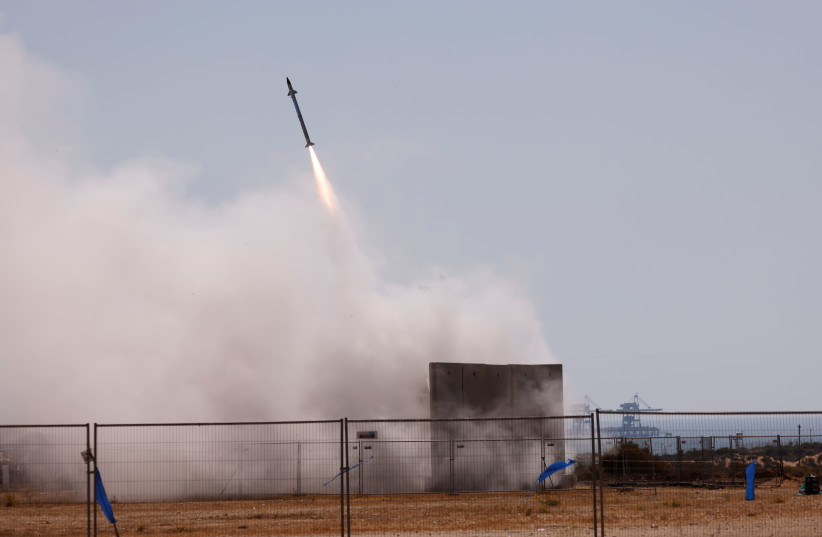Israel’s incorporation into US Central Command has increased the possibility of a regional integrated air and missile defense system against aerial threats, top US generals have said.
“That’s probably the area with some of the greatest opportunity: working toward an integrated air and missile defense Army Lt.-Gen. Michael Kurilla was quoted by Defense News as telling the Senate Armed Services Committee on Wednesday. “I think the addition of Israel... will help with that. We are collectively stronger together, and there are areas where each one brings unique capabilities.”
Kurilla, who currently leads the 18th Airborne Corps, is likely to be confirmed in the coming days as the head of US Central Command, replacing Marine Gen. Frank McKenzie.
During a virtual seminar hosted by the Middle East Institute, McKenzie also touted the idea of integrated air and missile defenses as a “rare opportunity” since Israel joined CENTCOM.
“The unique capabilities that Israel brings, now that Israel is in the Central Command area of responsibility, is another great resource that we can draw upon as we build this,” he was quoted by Airforce Magazine as saying.

While Iran “has relentlessly” built its ballistic missile stockpile, McKenzie said, and that its fleet of drones and land-attack cruise missiles has increased over the past five to seven years, it also created the opportunity to bring Gulf countries together to counter the threats.
“Here’s the opportunity: collective security in that region could best be approached, I would argue, initially from an integrated approach to air and missile defense,” McKenzie said.
According to him, such a system would not threaten state sovereignty, and would not need foreign forces stationed in other countries.
“Instead, what it’s about is the sharing of information,” he said. “Because really, in order to have integrated air and missile defense, what you need is good sensor coverage that is shared, to build what we call a common operational picture that all partners can see.”
As rocket and drone attacks against the United Arab Emirates have increased, talks are under way between Israel and several Persian Gulf states to understand what air defense systems are most relevant for the threats that they face.
Sources familiar with the discussions told The Jerusalem Post that discussions with the Gulf countries centered around shared threats such as rocket and drone attacks. The Post was told that they allowed officials to understand that Israel has systems other than the Iron Dome that may be a better solution to such threats.
While the UAE has highly formidable medium-to-high altitude air defense systems, both France and the United States announced following the attacks that they would assist the country in defending against missiles and rockets.
Israel has also offered the UAE support against such threats. Defense Minister Benny Gantz recently returned from a historic trip to Manama where he signed the first Memorandum of Understanding with the kingdom.
The agreement will set a solid security cooperation framework that formalizes defense relations between the two countries, allowing for increased cooperation in various fields such as intelligence sharing, military-to-military training, cooperation between defense industries and more.
Gantz said during his visit that the defense agreement “will contribute to the security of both countries and the stability of the region.”
